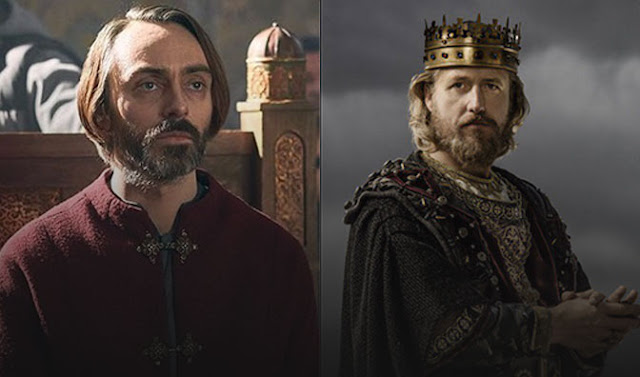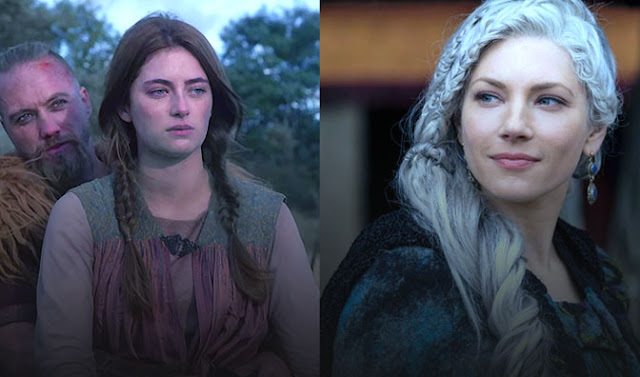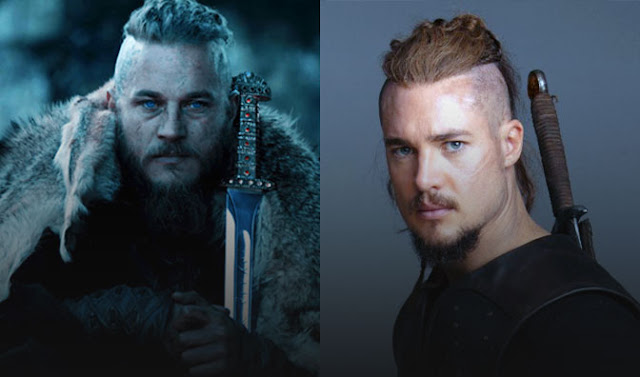Vikings on History and The Last Kingdom on Netflix cover a lot of the same ground: both are set during roughly the same time (9th century) and deal with essentially the same topic (the Vikings' conquests in England long after the collapse of the Roman Empire, when England was divided to many small kingdoms) and even share a few of the same characters.
But what exactly are the similarities? What are the differences, and which show is more historically accurate? Let's see together
Characters in Common
Let's start with some obvious things. Both shows have at least two significant characters. On the Saxon side, there is King Alfred the Great, a realistic English king who successfully defended against numerous Viking attacks. In The Last Kingdom, he was played by David Dawson. On Vikings, he has played several actors but is currently played by Ferdia Walsh Bellow.
Then there's the Vikings warlord Ubba, played by Rune Temte on The Last Kingdom, and Jordan Patrick Smith on the Vikings. This realist figure was among the leaders who led the great pagan army in the conquest of England in the 1860s. (If you were a Scandinavian, you would likely call it the Great Danish Army or the Great Viking Army.)
But the shows use these characters very differently. Take for example Ubba, who in The Last Kingdom is a brutal attacker. On the Vikings, his name changed slightly to "Ubbe" and he was portrayed as a thoughtful hero. Maybe it's because The Last Kingdom focuses on the Saxon side of this story while the Vikings focus on... well, maybe it's too obvious. (Side note: At this point in history, the Scandinavian invaders were not known as “Vikings.” At the time, it was still a verb. One could “go to a Viking,” but it wasn’t a “Viking.”)
King Alfred introduces further complications. When we meet him in The Last Kingdom, he's an adult, but he spent most of his time on the Vikings as a boy and only recently became a young man. This is due to another oddity of these performances:
The timelines are pretty different
The Vikings and The Last Kingdom begin with a historic Viking raid on the sacred island of Lindisfarne. On the Vikings, the main character Ragnar Lothbrok (Travis Fimmel) leads the raid with a party of Kattegat. He gives his reputation a huge boost and eventually becomes the most famous king of Norway.
Meanwhile, in The Last Kingdom, the raid leads to the kidnapping of young Saxon Uhtred of Bebbanburg (played as an adult by Alexander Dreymon), who will be raised as a Viking by Jarl Ragnar (not to be confused with Ragnar Lothbrok; Ragnar was Just a very common name among the Vikings at the time).
Immediately, there is something strange here: the raid on Lindisfarne occurred in 793, but King Alfred was not born until 848 or 849. The raid is most likely used as a springboard for both series due to its historical significance; It's considered the beginning of the "Viking Age", which is what both shows are about.
Uhtred vs Ragnar
Here's another thing the Vikings and The Last Kingdom have in common: the main characters aren't real...mostly.
Easy to explain Uhtred from Bebbanburg. There was a nobleman named Uhtred who ruled Bamburgh Castle at some point and may have had some personality traits in common with Uhtred we know from The Last Kingdom. But he lived more than 100 years after the time frame in which the show was set. Cornwell borrowed the name and made up the rest.
On the other hand, Ragnar may have been a bit real, but maybe he isn't. He is a mythical character who has appeared in many Scandinavian epic stories, but it is largely impossible to tell if these stories were based on a real man, if he was a mixture of several characters from the 9th century, or if he was entirely invented. In general, Scandinavian sources from this period are more explicit than English sources, which may be partly responsible for the latter's getting closer to real-world history than the Vikings.





